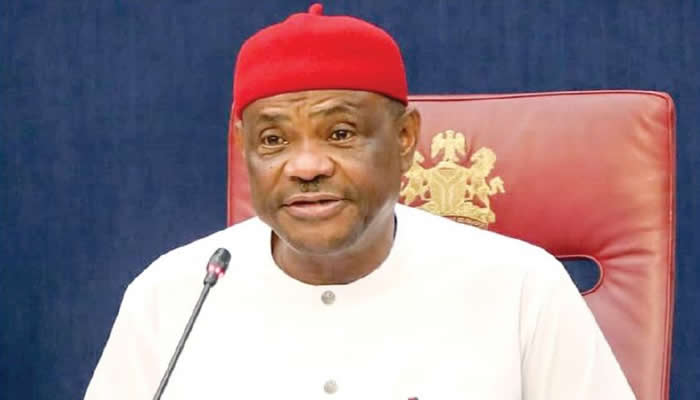
Rivers State Emergency Rule to Expire September 18 – Wike Declares

The political atmosphere in Rivers State is once again charged with tension as the expiration date for the emergency rule draws closer. Former Governor Nyesom Wike, who now serves as the Minister of the Federal Capital Territory, has declared that the state’s emergency rule, which has been in force for months due to heightened political unrest and security concerns, will officially expire on September 18. His remarks have sparked a fresh wave of debate across the state and the nation, with residents, politicians, and security experts anxiously awaiting what the post-emergency era will mean for the oil-rich state.
Wike, speaking during a closed-door meeting with key political stakeholders in Port Harcourt before addressing the press, stated that the emergency rule had served its purpose in stabilizing the situation in Rivers State after months of violent confrontations, intra-party clashes, and disruptions of government functions. According to him, the intervention of the Federal Government was necessary at the time to prevent the breakdown of law and order, but now, as the security situation shows signs of improvement, the time has come for Rivers State to transition back to normal governance. His pronouncement has sent ripples through both the ruling and opposition camps, with some describing the decision as timely while others fear that the withdrawal of federal emergency powers could plunge the state back into instability.
The Rivers crisis, which necessitated the emergency rule, dates back to the bitter political rift between loyalists of Wike and supporters of the sitting Governor, Siminalayi Fubara. The clash between the two powerful figures within the same political party created a vacuum in governance as the state House of Assembly became divided, protests erupted in parts of Port Harcourt, and violent attacks rocked local government areas. For months, Rivers State was described as a political war zone, with accusations of impeachment plots, sabotage of projects, and calculated attempts to destabilize the government. The situation worsened to the extent that the Federal Government had to invoke emergency rule powers in consultation with security agencies to restore order.
During his address, Wike emphasized that the federal intervention was never intended to usurp the authority of the governor or permanently impose control over Rivers State. He stressed that the decision to suspend normal democratic processes under an emergency arrangement was strictly a temporary measure to save lives, protect property, and prevent an all-out collapse of governance in the state. According to him, “The Rivers people deserve peace, and they deserve to have their government function without constant threats, intimidation, and violence. The emergency rule was not an attempt to weaken democracy, but rather a way of ensuring democracy survives in Rivers State.”
However, Wike’s declaration that the emergency rule will expire on September 18 has opened a floodgate of questions. Political analysts are asking whether the security situation has truly improved enough to warrant a full transition back to normal governance. Reports from different parts of Rivers State indicate that while large-scale violence has reduced, tension remains high, with occasional clashes between rival political groups and continuous protests by aggrieved supporters. Some analysts argue that lifting the emergency measures too early could embolden troublemakers to resume their activities. Others believe that extending the rule further would amount to overreach and could fuel resentment among citizens who already feel their democratic rights were compromised.
Governor Siminalayi Fubara, who has often clashed with Wike in the political arena, is yet to make a comprehensive statement on the planned expiration, but sources close to Government House say he views the move as a welcome relief. The governor has reportedly been lobbying for the restoration of full control over the state’s security and administrative machinery, arguing that Rivers people should be allowed to resolve their issues within the framework of constitutional democracy rather than through federal intervention. His supporters see the September 18 deadline as an opportunity for the governor to fully assert his authority and implement policies without interference from Abuja.
Meanwhile, the opposition parties in Rivers State are divided on the issue. The All Progressives Congress (APC) has welcomed the expiration date, insisting that the emergency rule was unconstitutional from the start and only served to empower certain political actors. On the other hand, some members of minority parties argue that the Federal Government should extend the rule until peace is completely restored, citing fears that political thuggery and violence could resurface once security agencies reduce their heavy presence in the state.
On the streets of Port Harcourt, reactions from residents are mixed. While some citizens expressed relief that the emergency rule is finally coming to an end, others remain skeptical, pointing out that the underlying political feud between Wike and Fubara has not been resolved. Traders at Mile One Market, who witnessed several violent protests during the peak of the crisis, told reporters that they just want peace to return permanently so business can thrive. Civil society groups have also weighed in, calling for dialogue between political leaders and urging both Wike and Fubara to put the interests of the people above their personal ambitions.
Security agencies, particularly the Nigerian Police Force and the military, are reportedly reviewing their strategies in preparation for the transition. Senior officers who spoke on condition of anonymity revealed that while they plan to gradually withdraw some personnel from Rivers State after September 18, they will maintain a strong presence in flashpoint areas to prevent a relapse into violence. The Inspector General of Police is expected to visit Rivers State ahead of the expiration date to assess the situation and reassure citizens of continued security.
Observers note that the expiration of the emergency rule in Rivers State could set a precedent for how future political crises are managed in Nigeria. The use of emergency powers is often controversial, as it temporarily suspends certain democratic processes, but in this case, many argue it was necessary to preserve the stability of one of the country’s most economically significant states. Rivers is a key oil-producing region, and disruptions in governance not only affect residents but also have national implications. With September 18 fast approaching, the Federal Government faces the delicate task of balancing security with democratic freedom.
Wike’s announcement has also reignited speculation about his long-term political ambitions. Some critics claim that his strong influence in Rivers State, even after leaving office as governor, has made it difficult for the new administration to operate independently. Others believe Wike is using the expiration of the emergency rule as a way to project himself as a statesman capable of restoring order and promoting peace. Either way, his words continue to shape the political discourse in Rivers State.
As the countdown to September 18 begins, all eyes will be on Rivers State to see how the expiration of the emergency rule unfolds. Will it mark the beginning of a new era of peace and stability, or will it plunge the state back into political chaos? For now, Rivers people are left hoping that their leaders will choose dialogue over confrontation and governance over power struggles.


